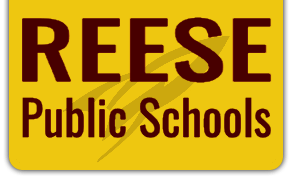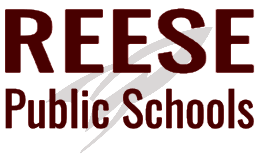SERIES 3000: OPERATIONS, FINANCE, AND PROPERTY
3100 General Operations
3116 District Technology and Acceptable Use
The Board will provide students, staff, volunteers, and other authorized users access to the District’s technology resources, including its computers and network resources, in a manner that encourages responsible use. Any use of District technology resources that violates federal or state law is expressly prohibited.
A. Children’s Internet Protection Act
The Board complies with the Children’s Internet Protection Act (“CIPA”) and directs its administration to:
- Monitor minors’ online activities and use technology protection measures on the District’s computers with internet access to block minors’ access to visual depictions that are obscene, constitute child pornography, or are harmful to minors. The term “harmful to minors” means any picture, image, graphic image file, or other visual depiction that:
a. taken as a whole and as to minors, appeals to a prurient interest in nudity, sex, or excretion;
b. depicts, describes, or represents, in a patently offensive way as to what is suitable for minors, an actual or simulated sexual act or sexual contact, actual or simulated normal or perverted sexual acts, or a lewd exhibition of the genitals; and
c. taken as a whole, lacks serious literary, artistic, political, or scientific value
for minors.
2. Use technology protection measures on the District’s computers with internet access to block all access to visual depictions that are obscene or that constitute child pornography. The technology protection measures may be disabled by authorized personnel during adult use to enable access to bona fide research or for other lawful purposes. The Superintendent or designee will determine which District personnel are authorized to disable the protection measures.
3. Educate minors about appropriate online behavior, including interacting with other people on social networking websites and chat rooms, as well as cyberbullying awareness and response.
4. Prohibit access by minors to inappropriate matter on the internet.
5. Prohibit unauthorized access, including hacking and other unlawful online activity by minors.
6. Prohibit the unauthorized disclosure, use, and dissemination of personal identification information about minors.
7. Restrict minors’ access to materials that are inappropriate for minors. The Board defines materials that are “inappropriate for minors” as obscene depictions, child pornography, and any other material harmful to minors.
8. Encourage the safety and security of minors when using electronic mail, chat rooms, and other forms of direct electronic communication.
The Superintendent or designee will take steps necessary to implement this Policy and to otherwise comply with CIPA.
B. Acceptable Use Agreement
The Superintendent or designee will develop, review, and revise as necessary an acceptable use agreement that must be signed before a user is provided access to the District’s technology resources. Different acceptable use agreements may be developed based on the user’s status. At a minimum, the Superintendent or designee will develop an acceptable use agreement to be signed by each of the following groups:
- adult users, including employees, volunteers, and Board members;
- students in grades 7 and above and their parent/guardian; and
- students in grades 6 and below and their parent/guardian.
The acceptable use agreement must be consistent with this Policy and must include, at a minimum, all of the following:
- A statement that:
a. use of District technology resources is a privilege that may be revoked at any time;
b. a user has no expectation of privacy when using District technology resources;
c. District technology resources use may be monitored by the District and that the use may be subject to FOIA or disclosure in litigation;
d. District technology resources may not be used to bully, harass, or intimidate others;
e. misuse of District technology resources may result in loss of access to the resources and potential disciplinary action; and
f. the District does not guarantee that the District’s technology resources will be error free or uninterrupted.
2. Provisions to protect the integrity of District technology resources, including a requirement that each user only access the resources by using that user’s assigned user name and password.
3. A list of what constitutes misuse of District technology resources.
4. A prohibition against:
a. accessing other user accounts or files without authorization;
b. conducting personal business or activities;
c. accessing pornography;
d. communicating inappropriately with students;
e. accessing or downloading confidential student information which the employee has no legitimate educational need to know; and
f. accessing or downloading unauthorized software or programs.
5. A requirement that users report any material that is threatening, harassing, or bullying.
6. A release of all claims and liability against the District for use of District technology resources.
C. District Personnel Use
District personnel must comply with Policies 4215 and 4216.
D. State Assessments
During the administration of state assessments (e.g., WIDA, M-STEP, etc.), unless otherwise permitted by this subsection, students and District personnel, including those individuals acting as test administrators, are prohibited from possessing, using, wearing, or otherwise accessing any electronic devices not being actively used for testing purposes when in an active testing session or
while on a break when in an active testing session. Pictures, videos, or other communications regarding test content are prohibited during all testing and breaks.
For the purposes of this subsection, an “electronic device” includes any electronic device that can be used to record, transmit, or receive information not used for testing, including but not limited to computers, tablets, iPads, e-readers, smart watches (including Fitbits), smartphones and cell phones, Bluetooth headphones or smart earbuds, or smart glasses.
The Superintendent and building principals are authorized to develop additional building-level rules related to state assessments so long as those rules are not in conflict with this subsection.
- Students
a. Students shall leave all electronic devices outside of the testing room.
b. If an additional electronic device is medically necessary for a testing student, the device must be left with the test administrator, unless the student is required to possess the device, in which case the test must be administered to the student by a test administrator in a one-on-one setting and the student must be actively monitored at all times while testing.
c. During the testing sessions or breaks, students may not access any additional websites or applications on a device used for testing.
2. Test Administrators
a. Test administrators or other District personnel monitoring or troubleshooting the administration of state assessments must:
i. Ensure that all background applications and alternative websites are disabled on testing devices.
ii. Actively monitor students in the testing room and verify that students do not have access to additional electronic devices before, during, and after testing, including breaks.
iii. Refrain from disturbing the testing environment, including through texting, speaking, or using electronic devices for non-testing purposes (e.g., to complete other work). Test administrators must silence all electronic devices. Test administrators may wear a wearable electronic device (e.g., smart watch or Fitbit), but must ensure that the device is in airplane mode during test administration.
b. Test administrators may use electronic devices to alert other personnel of issues or emergencies requiring assistance. Such other personnel may use their electronic devices for troubleshooting purposes, but should exit the testing room when engaging in those communications.
3. Penalties
The failure to comply with this subsection may result, as applicable, in employee or student disciplinary action and such consequences as deemed necessary or appropriate by the Michigan Department of Education (e.g., invalidation of an individual student’s test, or misadministration of the entire testing session and invalidation of all the students’ tests).
E. Public Access to Technology
- Pursuant to the Michigan Library Privacy Act, each school library offering public access to the internet or a computer, computer program, computer network, or computer system (a “Qualifying School Library”) will limit minors to only use or view those terminals that do not receive material that is obscene, sexually explicit, or harmful to minors. Persons age 18 or older, or a minor accompanied by the minor’s parent/guardian, may access a school library terminal that is not restricted from receiving such material, if any.
- Only when a Qualifying School Library offers public access as described in subsection D.1., the District must designate at least 1 terminal that is not restricted from receiving such material and at least 1 terminal that is restricted from receiving such material. Library staff must take steps to ensure that minors not accompanied by a parent or guardian do not access the unrestricted terminal. The Superintendent or designee will determine which employees will implement subsection D in each Qualifying School Library.
- As used in this Policy, “terminal” means a device used to access the internet or a computer, computer program, computer network, or computer system.
Legal authority: 47 USC 254; MCL 397.602, 397.606
Date adopted: 08/09/21
Date revised: 10/16/23


